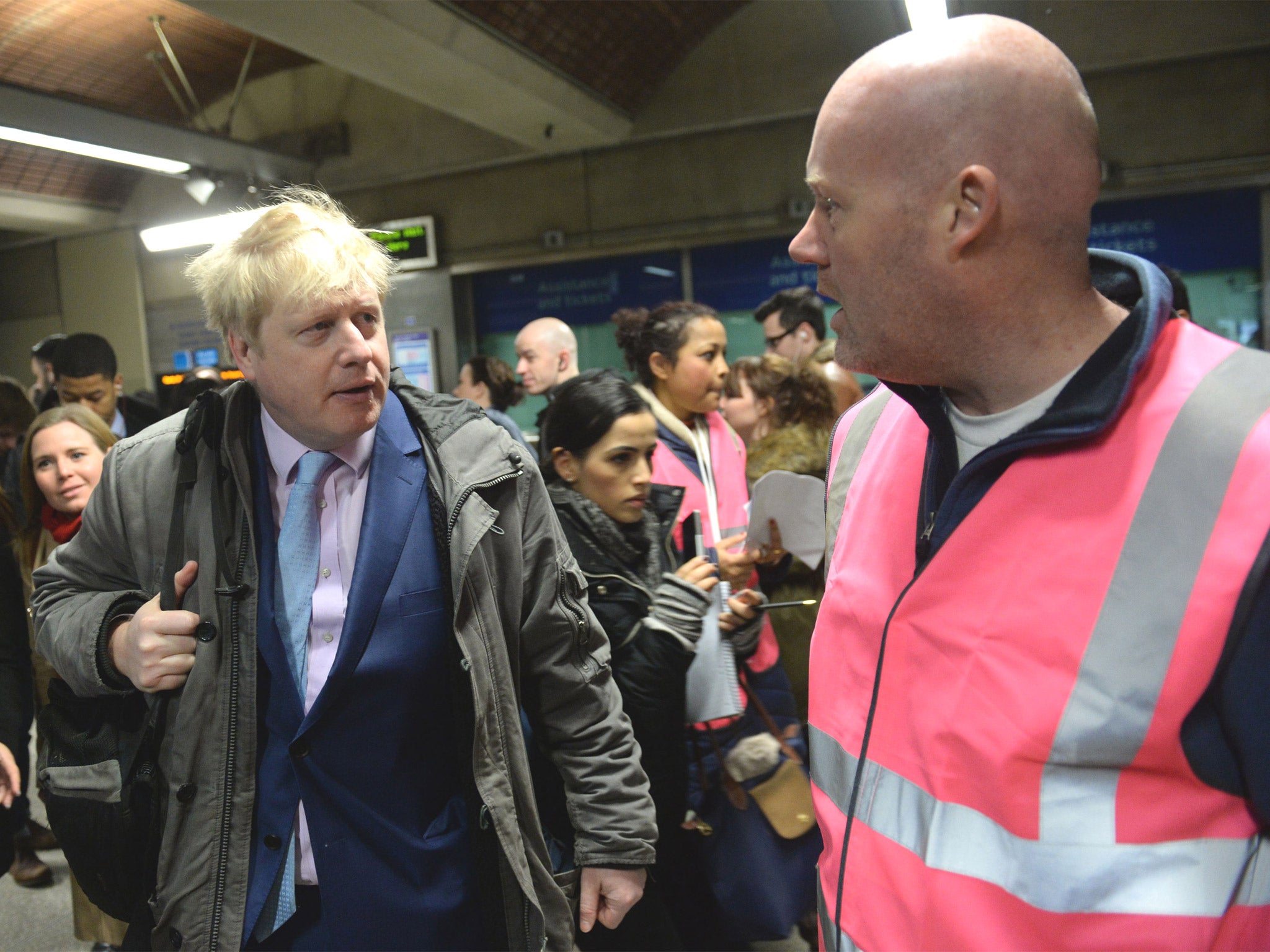Tube strike fallout: Tories mulling plans to ban all-out strikes in key transport services

Your support helps us to tell the story
From reproductive rights to climate change to Big Tech, The Independent is on the ground when the story is developing. Whether it's investigating the financials of Elon Musk's pro-Trump PAC or producing our latest documentary, 'The A Word', which shines a light on the American women fighting for reproductive rights, we know how important it is to parse out the facts from the messaging.
At such a critical moment in US history, we need reporters on the ground. Your donation allows us to keep sending journalists to speak to both sides of the story.
The Independent is trusted by Americans across the entire political spectrum. And unlike many other quality news outlets, we choose not to lock Americans out of our reporting and analysis with paywalls. We believe quality journalism should be available to everyone, paid for by those who can afford it.
Your support makes all the difference.All-out strikes would be banned in key transport services, such as the London Underground, under plans being examined for inclusion in next year’s Conservative Party manifesto.
The moves emerged as large parts of the capital were paralysed by a 48-hour walk-out by members of the RMT union in protest over job losses on the Tube network.
Senior Tories believe new restrictions would prove highly popular with the voters, but their Liberal Democrat Coalition partners and Labour accused the party of trying to use the industrial action to score political points.
Conservative sources confirmed the party was considering a plan to class rail services including the Underground as an “essential service”. That would limit the right of workers to mount industrial action by providing a legal guarantee of minimum levels of service in the sector.
The party is also examining a move to introduce a strike ballot threshold under which a majority of union members – rather than simply those that vote – has to be reached before industrial action is legal.
Another alternative is that a lengthy “cooling off” period between a vote to strike and industrial action taking place is introduced.
However, the Independent understands that attempts to toughen union laws have divided Conservative ministers. Patrick McLoughlin, the Transport Secretary and a former union member, is among those resisting the move.
Labour found itself under pressure yesterday to condemn the union action. In the Commons, David Cameron said he “unreservedly condemned” the strike and criticised Ed Miliband for failing to follow suit.
Labour replied that it believed the strike should not have gone ahead, but said responsibility for resolving the dispute lay equally with Bob Crow, the RMT’s leader, and Boris Johnson, the Mayor of London.
A source said: “The Tories need to think more about getting London moving and less about their next manifesto.”
Two thirds of Tube services were hit by yesterday’s action, while overground trains and buses were packed and roads gridlocked as commuters headed for work.
The action, involving members of the Rail, Maritime and Transport union (RMT) and Transport Salaried Staffs Association (TSSA), continues until 9pm tomorrow with a further two-day stoppage planned next week.
Join our commenting forum
Join thought-provoking conversations, follow other Independent readers and see their replies
Comments